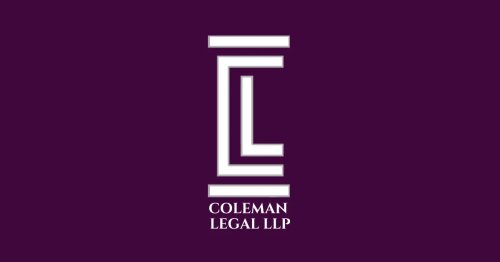Best Disability Lawyers in Dublin
Share your needs with us, get contacted by law firms.
Free. Takes 2 min.
List of the best lawyers in Dublin, Ireland
About Disability Law in Dublin, Ireland
Disability law in Dublin, Ireland, encompasses a range of legal rights and protections for individuals with disabilities. These laws aim to ensure that people with disabilities can live with dignity, participate fully in society, and access opportunities on an equal basis with others. Disability law covers various aspects such as accessibility, discrimination, education, employment, and social services. Understanding these legal provisions is crucial for ensuring that the rights of individuals with disabilities are upheld and protected.
Why You May Need a Lawyer
Individuals in Dublin may need a lawyer specializing in disability law for various reasons, including:
- Discrimination: If a person with a disability experiences discrimination in areas such as employment, education, housing, or access to services, legal assistance might be necessary to challenge the discrimination and seek redress.
- Access to Services: Legal help may be needed to ensure that public services and facilities are accessible to individuals with disabilities, in compliance with legal standards.
- Education Rights: If a student with a disability is not receiving appropriate accommodations or supports in their educational setting, a lawyer can help advocate for their rights.
- Employment Issues: Legal help may be necessary if an individual with a disability faces unfair treatment or barriers in the workplace.
- Social Welfare: Navigating the social welfare system and securing benefits can be complex, and legal guidance can be crucial.
Local Laws Overview
In Dublin, several key laws and regulations protect the rights of individuals with disabilities:
- Equal Status Acts 2000-2018: This legislation prohibits discrimination across several grounds, including disability, in areas such as access to goods and services, education, and accommodation.
- Disability Act 2005: This Act provides a framework for promoting equality and inclusion for people with disabilities. It includes provisions on accessibility, the assessment of needs, and the delivery of public services.
- Employment Equality Acts 1998-2015: These Acts prohibit discrimination in the workplace, including on the grounds of disability, and promote equal opportunities for employment.
- Education for Persons with Special Educational Needs (EPSEN) Act 2004: This act provides for the education of children with special educational needs and supports their right to inclusive education.
Frequently Asked Questions
What is the definition of a disability under Irish law?
Under Irish law, particularly the Equal Status Acts and Employment Equality Acts, a disability is broadly defined and can include physical, intellectual, and mental health conditions, as well as the presence of a condition or disease in the body.
Can I request workplace accommodations for my disability?
Yes, under the Employment Equality Acts, employers are required to make reasonable accommodations to support employees with disabilities, provided these do not impose a disproportionate burden.
What are my rights regarding accessibility in public places?
The Disability Act 2005 outlines that public buildings and services must be accessible to individuals with disabilities, ensuring equal access and participation.
How can I address discrimination I face because of my disability?
If you experience discrimination, you can file a complaint with the Workplace Relations Commission (WRC) or seek legal advice to explore other potential courses of action, including litigation.
What supports are available for students with disabilities in schools?
The EPSEN Act 2004 ensures that students with disabilities receive appropriate educational supports and accommodations to facilitate their learning and participation in an inclusive environment.
Are there any benefits or allowances available for people with disabilities?
Yes, individuals with disabilities in Ireland can apply for various social welfare benefits and allowances, such as the Disability Allowance, which provides financial support.
Can people with disabilities participate in the labor market equally?
Yes, the Employment Equality Acts promote equal opportunities and prevent discrimination, aiming to facilitate the full participation of people with disabilities in the labor market.
What are my options if a building is not accessible?
If a public building is not accessible, you can contact the relevant authorities, file a complaint under the Disability Act 2005, or seek legal counsel to address the issue.
How can I ensure my rights are being respected?
Staying informed about your legal rights and seeking advice from a specialized lawyer can help ensure that your rights are respected and upheld, whether in employment, education, or access to services.
Who can represent my interests if I can't advocate for myself?
If you are unable to advocate for yourself, a legal representative, advocate, or family member can represent your interests and ensure your rights are protected and upheld.
Additional Resources
Here are some resources and organizations that can provide valuable information and assistance:
- National Disability Authority (NDA): Offers policy advice on disability issues and promotes universal design.
- Inclusion Ireland: An advocacy organization for people with intellectual disabilities.
- Workplace Relations Commission (WRC): Handles complaints related to equality and discrimination.
- Disability Federation of Ireland (DFI): Provides support and advocacy for people with disabilities.
Next Steps
If you need legal assistance in dealing with disability-related issues, consider taking the following steps:
- Research specialized disability lawyers in Dublin who have experience in handling cases similar to yours.
- Contact local advocacy organizations for advice and potentially free or low-cost legal support.
- Gather any relevant documentation and information related to your issue to present to your lawyer.
- Schedule a consultation with a lawyer to discuss your situation, ask questions, and understand your legal options.
By taking these steps, you can better navigate the legal landscape and ensure that your rights and interests are effectively represented.
Lawzana helps you find the best lawyers and law firms in Dublin through a curated and pre-screened list of qualified legal professionals. Our platform offers rankings and detailed profiles of attorneys and law firms, allowing you to compare based on practice areas, including Disability, experience, and client feedback.
Each profile includes a description of the firm's areas of practice, client reviews, team members and partners, year of establishment, spoken languages, office locations, contact information, social media presence, and any published articles or resources. Most firms on our platform speak English and are experienced in both local and international legal matters.
Get a quote from top-rated law firms in Dublin, Ireland — quickly, securely, and without unnecessary hassle.
Disclaimer:
The information provided on this page is for general informational purposes only and does not constitute legal advice. While we strive to ensure the accuracy and relevance of the content, legal information may change over time, and interpretations of the law can vary. You should always consult with a qualified legal professional for advice specific to your situation.
We disclaim all liability for actions taken or not taken based on the content of this page. If you believe any information is incorrect or outdated, please contact us, and we will review and update it where appropriate.











